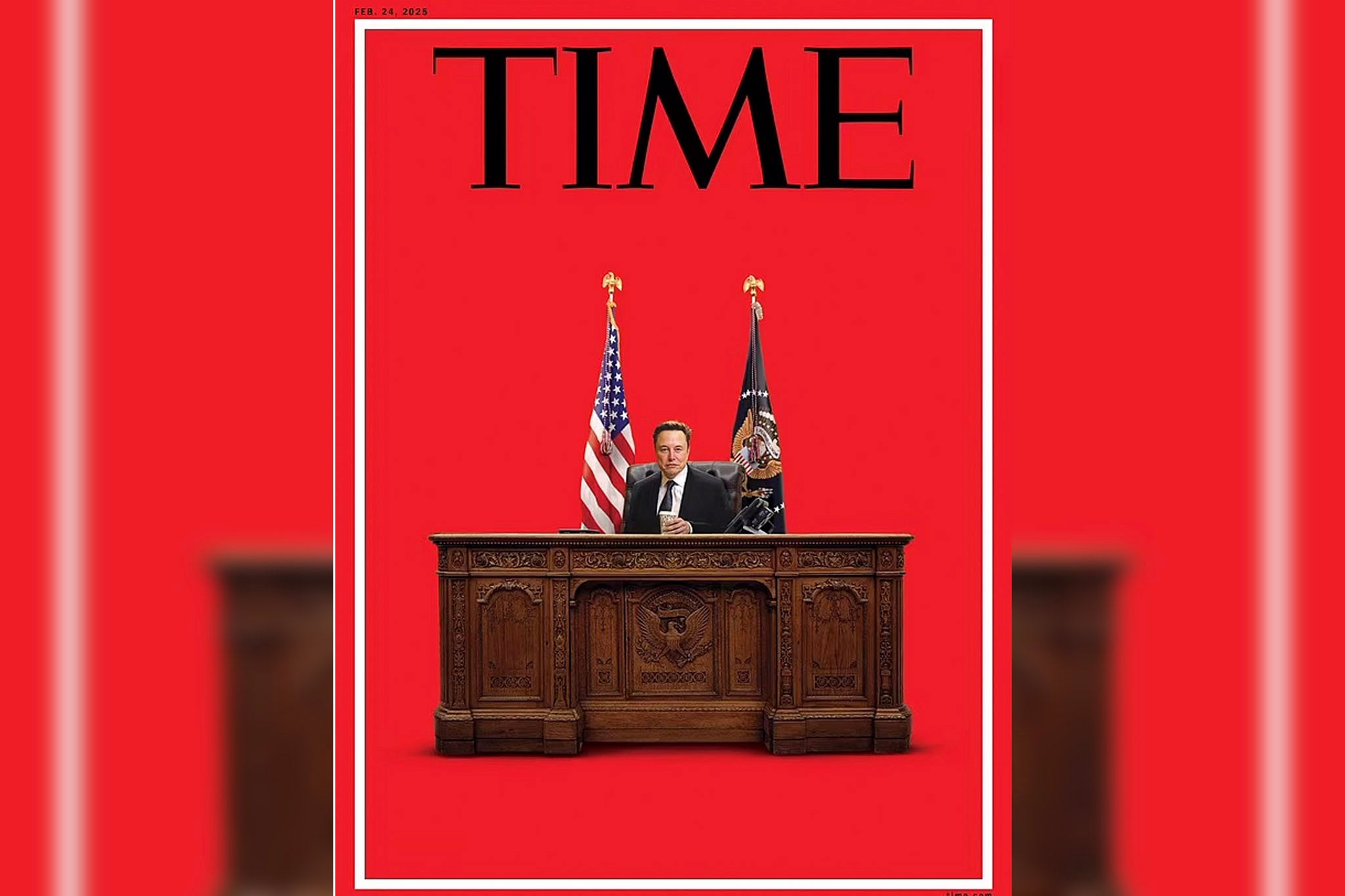An uncharacteristically subdued Donald Trump was at times silent as he seemed to reluctantly share the limelight with wealthy Republican donor turned unpaid White House aide Elon Musk in an interview with Fox News personality Sean Hannity on Tuesday evening.
The SpaceX founder used the primetime slot to try to justify the sweeping cuts his so-called “Department of Government Efficiency” has attempted to make over Trump’s first month in office as a needed corrective to a recalcitrant civil service that is resisting the president’s demands.
Musk, who appeared alongside the 47th president during a joint interview taped last week for Hannity’s eponymous program, described his role in the Trump administration as “tech support” and as a sort of enforcer for Trump’s will against non-compliant government workers.
Trump in turn effusively described Musk as “a leader” who “gets it done” during the softball sit-down with Hannity, leading the partisan personality to describe the unlikely pair as remarkably fraternal.
As Trump and Musk recounted the latter’s desire to travel to — and eventually die on — Mars, Hannity interjected to get the conversation back on track while remarking: “This is going to be hard. I feel like I'm interviewing the two brothers.”
Trump looked down briefly, perhaps reacting to the inherent suggestion that he and Musk are on an equal footing – an idea opponents have trolled him with since the SpaceX CEO's appointment. Time magazine even printed a front cover showing Musk sitting behind the Resolute Desk with Trump nowhere in sight, suggesting that the tech pioneer is the one wielding the real power.
For his part, Trump all but declared that Musk’s role was to ensure that the executive orders he has signed since taking office are carried out regardless of legality or constitutionality. He groused that the nonpartisan civil servants who perform most nuts-and-bolts tasks of government have resisted following them to the letter.
“When you sign these executive orders, a lot of them don't get done. And they'd be the most important ones,” he said.
He added that Musk “would take that executive order that I’d signed” and have “those people” — a reference to the coterie of young, often unqualified enforcers who he has recruited from his own companies and dispatched throughout the executive branch — “go to whatever agency it was” and demand that they “get it done.”
Musk, a South African immigrant who grew up under that country’s racist Apartheid government before moving to the United States in the 1990s, appeared to confirm his role as he complained that federal employees were disbursing funds appropriated by Congress instead of following Trump’s directive to stop programs meant to benefit people not in the U.S. with legal status.
He offered the example of a Federal Emergency Management Agency grant program that was being used by New York City to shelter migrants in hotels he falsely claimed to be of the “luxury” variety.

“We went in there and we were like: ‘This is a violation of presidential executive order — it needs to stop,’” he said.
Musk added that “one of the biggest functions” of his team is “just making sure that the presidential executive orders are actually carried out” and claimed that Trump’s orders were more important than the will of Congress — the branch with the constitutional power to tax and spend — because in his view the president “is the elected representative of the people, so it's representing the will of the people.”
“And if the bureaucracy is fighting the will of the people and preventing the president, the president, for implementing what the people want, then what we live in is a bureaucracy and not a democracy,” he added.







